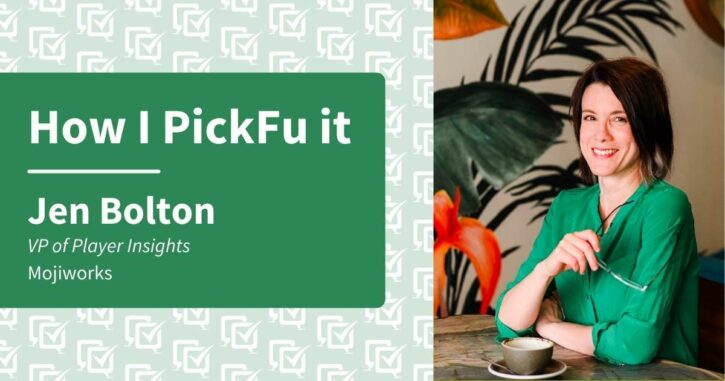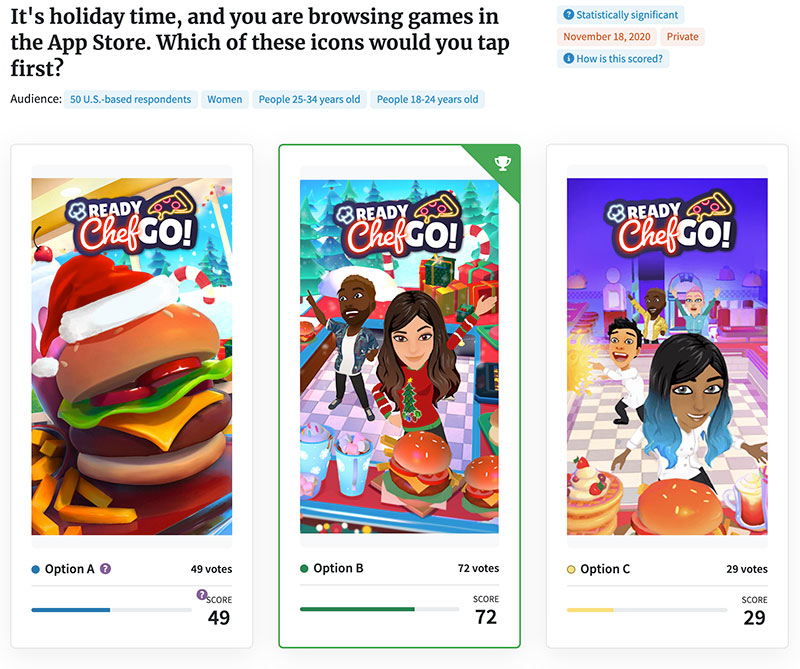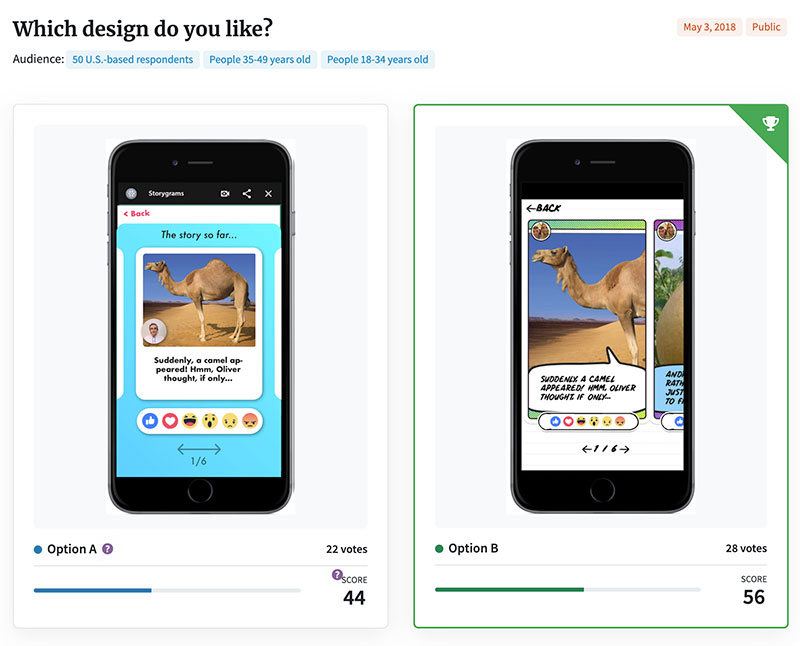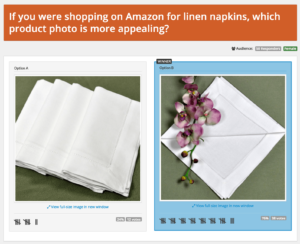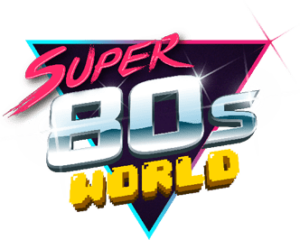This is How I PickFu it, our Q&A series with people who use consumer insights in their work life.
Who: Jen Bolton
Where: Guildford, UK
What: VP of Player Insights at Mojiworks for nearly 6 years
Current mood: 😊
Meet Jen, a VP of Player Insights at the mobile gaming company, Mojiworks, who is decyphering player behaviors, conducting comprehensive user research, and making informed game development decisions daily.
Join us as we explore Jen’s typical workday, her process of deriving insights, and her unique perspective on using PickFu for optimized game design and development.
Here’s our chat with Jen:
- Who is your core customer?
- Take us through a typical workday.
- What tools and apps do you use regularly?
- How do you use PickFu in your work? What kinds of things do you test?
- What’s your favorite PickFu poll to run and why?
- What do you do while you wait for your poll results?
- Who do you share your poll results with on your team?
- Most surprising thing you’ve learned from your customer research.
- Weirdest thing you’ve PickFu’d (or would like to).
- What’s your superpower?
- What’s your top tip for someone running their first PickFu poll?
- Your dream job?
Who is your core customer?
Our players. Mojiworks partners with social platforms to make bespoke multiplayer games for their audiences: folks who love to spend quality time playing games with the people they care about.
Take us through a typical workday.
Tea first, always! ☕ Our team is fully remote, and we’re hyper-collaborative, so there are a few regular points every day where I sync up with teammates, starting with a Slack greeting and updating my plans for the day.
I work super closely with our Head of Data on all sorts of projects to help our team understand our players and what they want from our games: we run in-game testing, survey players, chat with them, and run PickFu polls. ✨
A couple of times a week, we have optional drop-in discussions where we talk about stuff to do with various aspects of game development, our culture or well-being. I get to as many of those as possible and facilitate regularly. On Fridays, I spend the morning reviewing the week’s sprint with the team and planning the next one. We pack a lot into our weeks, and it’s never boring!
What tools and apps do you use regularly?
Notion is the home for all of our project work, and Slack is our main communication tool. We’ll use Google Meets to record a call or presentation (e.g. show and tells), and we’ve got Google Workspace for email, calendaring, and file storage. We use Miro a lot, too – in Insights, we love Miro for idea mapping and analysis because it’s so flexible and friendly to use. Then there’s PickFu, which we’ve happily used to get audience feedback since 2018!
How do you use PickFu in your work? What kinds of things do you test?
We’ve used PickFu most often for testing game content and mobile game marketing concepts. Mainly visual stuff like characters and logos, we’ve used it for game names and taglines.
What’s your favorite PickFu poll to run and why?
We’ve run every type of PickFu poll at least once, and for our team’s needs, Round-Robin polls really deliver. Getting feedback about two variants relative to each other really helps us understand the why of what works and what doesn’t so that our iterations lead to significant improvements (we’ll often re-test for added confidence).
Seeing which variant ‘wins’ is always interesting. Still, the real gold is in the feedback, and we’ve never been disappointed with the overall quality of the feedback we get from PickFu panels.
What do you do while you wait for your poll results?
a) Fix a snack
b) Do a 90-second plank
c) Check my socials
d) Answer emails

Who do you share your poll results with on your team?
Once we’ve added our own analysis to the PickFu findings, we share that on Slack with everyone – our whole team. We’re small and united around one game right now, so that’s easy! But no matter how big we might get, I can’t envision a time when we wouldn’t share our research results across the company. The more we learn about our audience, the better we get at making games they love and want to stick with.
We sometimes share results in discussions with platform partners, too. PickFu makes it super easy to share poll summaries and results data.
Most surprising thing you’ve learned from your customer research.
Generally, that respondents will see something in our assets that we didn’t, and sometimes won’t care at all about elements we think are super important. That’s what makes user research so fascinating – and useful!
Weirdest thing you’ve PickFu’d (or would like to).
We’ve been pretty conventional in our PickFuing so far. Our second-ever poll featured a sudden camel, which maybe qualifies. We were testing to help us decide on a game prototype design, and the results took just an hour to come in. 🐪 ! ⚡️
What’s your superpower?
It used to be 20/15 eyesight, but sadly that’s long gone now.
I’m pretty good at active listening, a handy skill for a researcher to have (and generally useful in everyday interactions).
What’s your top tip for someone running their first PickFu poll?
Am I allowed three? 😄
Establish clear learning goals before you set up your poll – super important! That helps you craft good questions and zero in on the most relevant feedback when reviewing the results. It can be easy to get distracted by comments that don’t help with the main thing you’re trying to learn, especially when you start polling. Since all the response data is saved in your account, you don’t have to worry about losing interesting feedback that’s outside your learning target.
Be clear and concise in your question wording to make it easy for respondents to give you the feedback you want. The Question Context area is really useful for adding extra explanation if you need to. Still, some respondents may skip over it, so we’ve found that treating the question as ‘the directions’ and putting extra care into it pays off.
If you test multiple variants, make sure they’re very distinct from each other so that respondents can see clear differences and talk about them easily.
Your dream job?
Genuinely: the one I’ve got. I get to work with wonderful, super-talented people to make games that unite people through joy. We need more light-hearted connections in the world, and I feel super grateful to be helping to create that.
